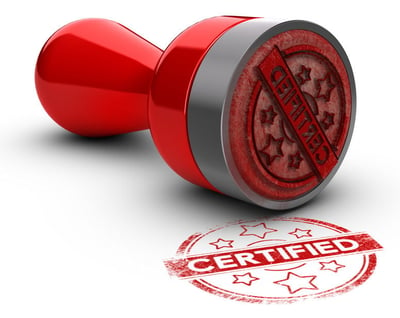Certificates of origin (COO) for Free Trade Agreements (FTA): everything you need to know
We’ve written recently about the changes and new requirements for certification of origin for North America’s newest trade agreement, CUMSA/USMCA. Read more about that here.
This week we’ll dig into everything importers need to know about other free trade agreements (FTAs). Canada currently has 14 free trade agreements with 65 countries.
What do I need to know about COOs?
 The first thing to know is that not all goods manufactured in the FTA country will qualify for duty-free or duty-relieved treatment under that free trade agreement.
The first thing to know is that not all goods manufactured in the FTA country will qualify for duty-free or duty-relieved treatment under that free trade agreement.
Importers need to become familiar with the certification requirements for the other FTAs, and which goods (or parts of goods) qualify for preferential treatment.
What format do Certificates of Origin take?
The format for COOs will vary depending on the particular agreement. Some FTAs will require the certification to be in a specific form or format, while others will permit the exporter or producer to issue a declaration of origin statement, usually on a commercial document, like the invoice or packing list.
Each FTA will either provide field instructions dictating the information required in each certificate of origin, or it will provide an annex containing minimum information that must be provided in the declaration of origin.
For example, CETA (Canada European Union Comprehensive Economic & Trade Agreement), Declarations of Origin must be provided on a commercial document prepared by the exporter, such as an invoice, packing list, pro-forma invoice, etc. that provides a complete description of the qualifying goods.
Declarations on a separate sheet will be rejected by the EU authorities, unless they are appended to and form part of a commercial document.
Review our list of free trade certificates here.
When do I file a COO?
This depends on the type of certification or declaration of origin.
For blanket certification of origin, or a declaration covering multiple shipments of identical, qualifying goods:
- The importer should have the COO in their possession. They should present it to their customs broker before the first shipment in the blanket period is declared to Canada Customs.
For single use or one-time COOs or declarations:
- These should travel with the goods. They should be presented to the customs broker at the time the shipment arrives at the border for customs clearance.
Will my COO be audited?
Customs will audit COOs and declarations from time to time. If they are found to be invalid or unsupported by documentary evidence, the importer might be required to repay the duties, with taxes and interest.
If importers need to help their exporter or producer complete the COO or declaration, there’s a good chance that the exporter or producer is not familiar with the origin or certification requirements of the FTA.
This could increase the likelihood that the COO would not hold up during an audit.
What are some common mistakes with COOs?
- Importers often treat FTA COOs as mandatory shipping documents, needed to eliminate customs duties. This is a mistake because exporters and producers can’t be pressured or coerced into issuing a certification of origin. This renders them invalid.
- Just because a good is produced in the FTA country doesn’t mean that it was produced in a manner that meets the Rules of Origin for that agreement. We know from audit experience that over 60% of COOs are either invalid or unsupported by documented evidence proving that the goods qualify for that preferential treatment.
- Another common mistake is blindly accepting the COO without having it reviewed for accuracy on its face.
- And finally, importers often fail to leave additional room in their profit margins to help absorb some of the retroactive duty, tax, or interest assessments in the event the COO fails a Customs audit.
The world of Free Trade Agreements is complex and changing. With the new CUSMA/USMCA agreement and changing rules post-Brexit, reach out to our Consulting team today to connect with one of our Free Trade Agreement experts. We’re here to help!
Understanding Free Trade. It's what we do.

